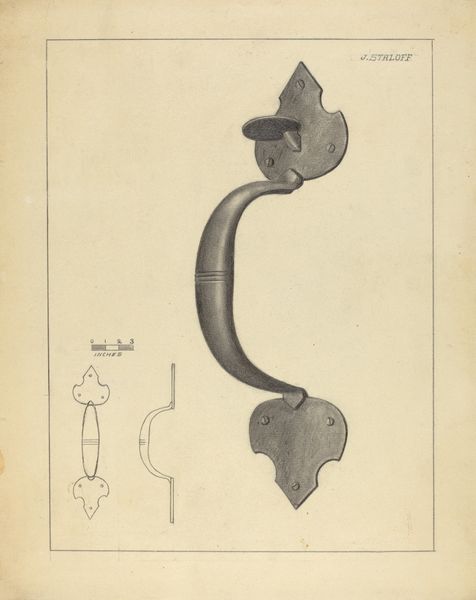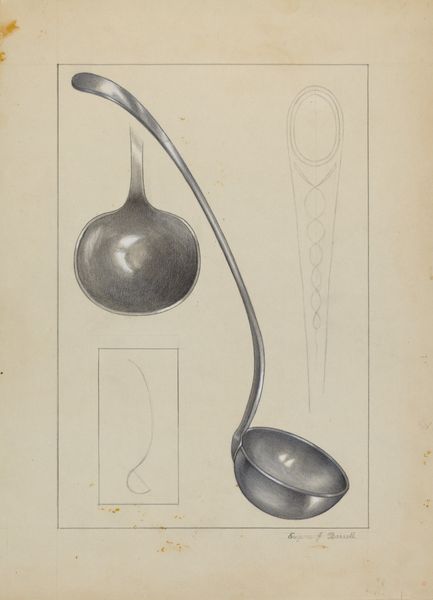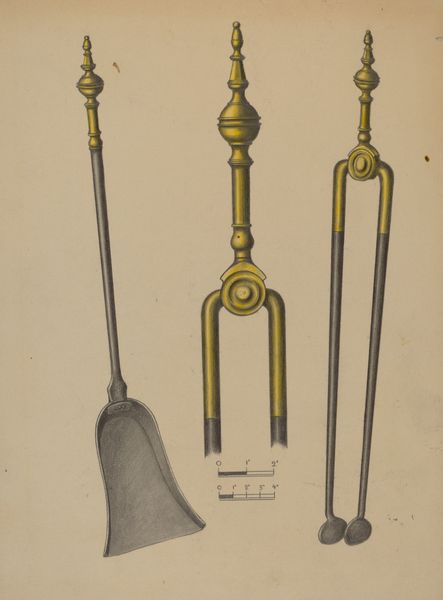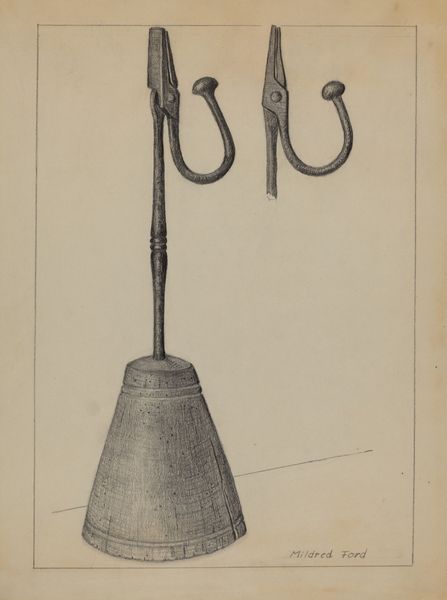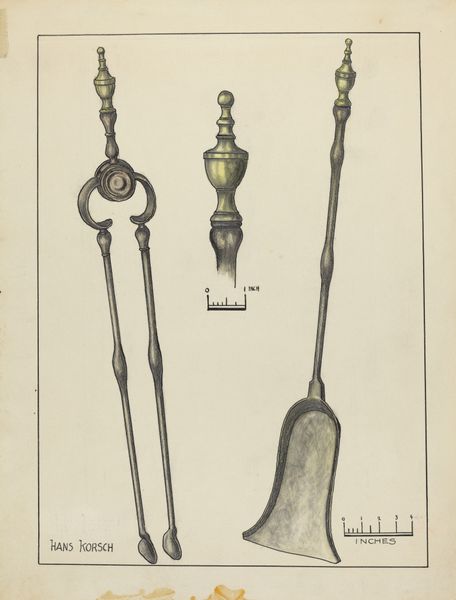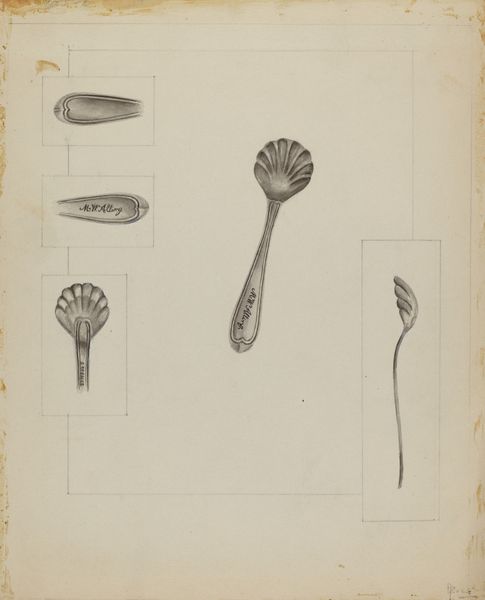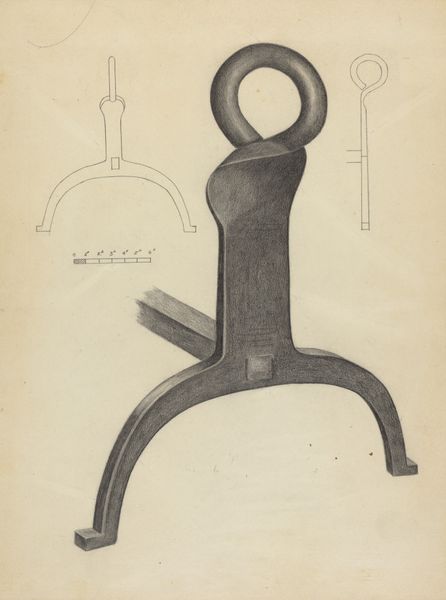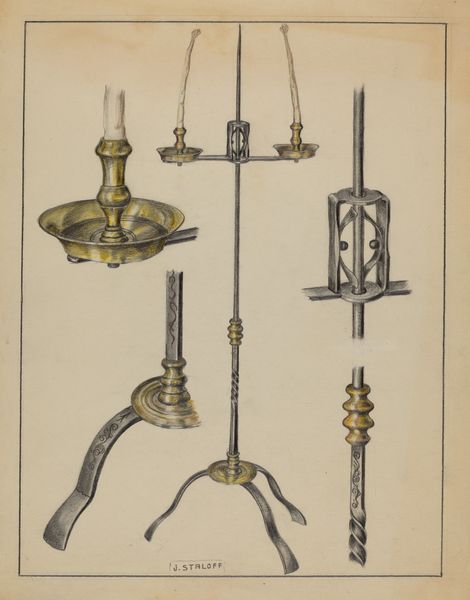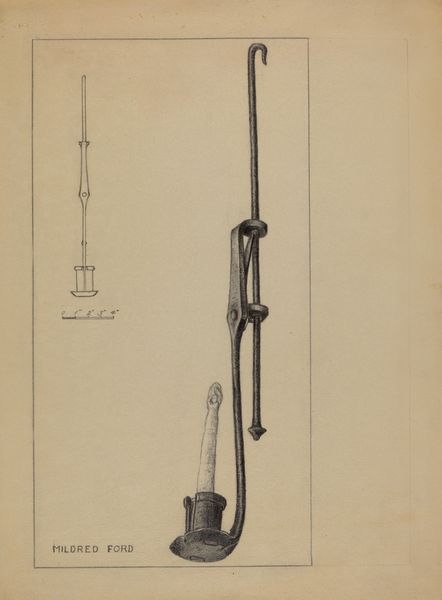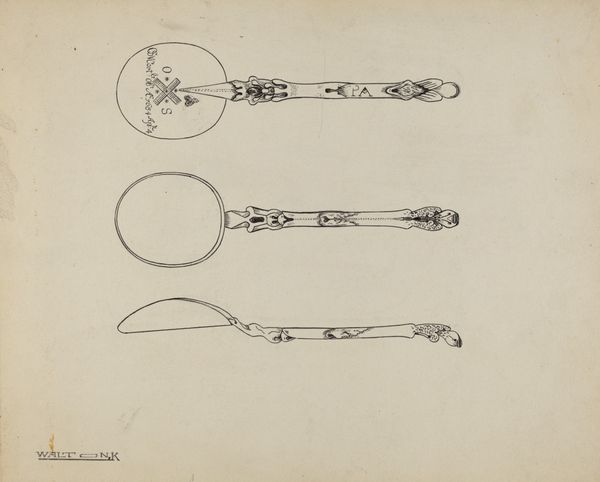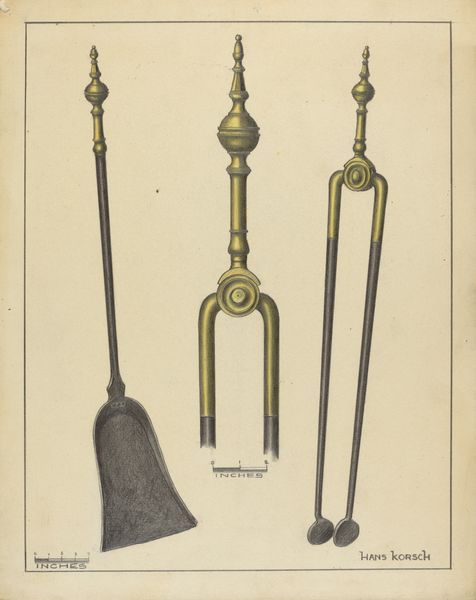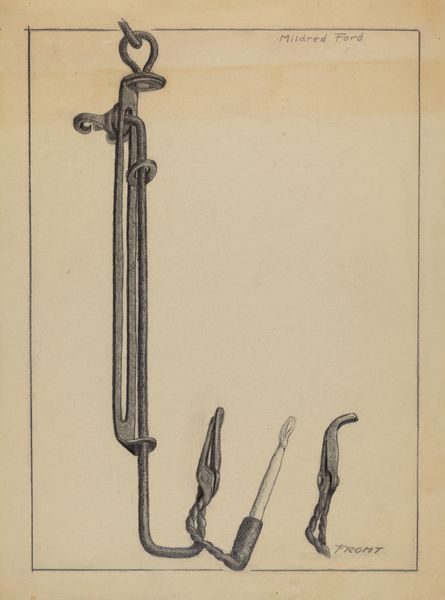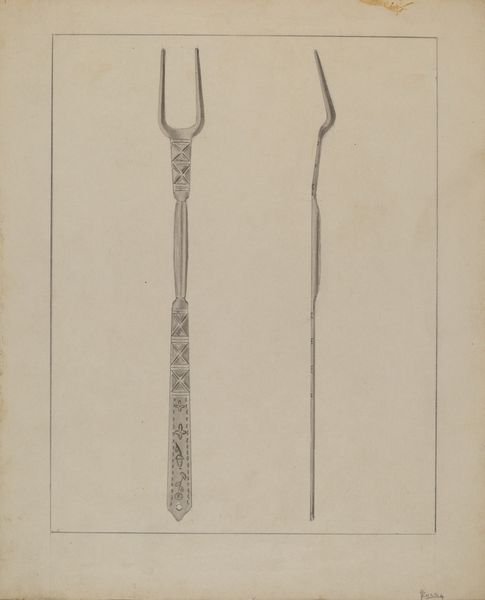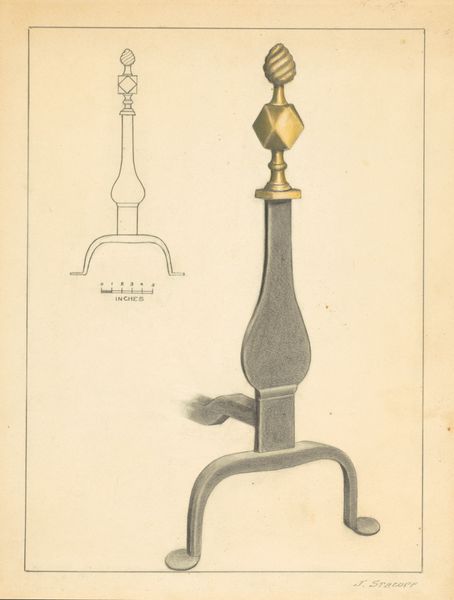
drawing, pencil
#
drawing
#
pencil sketch
#
form
#
pencil
#
line
#
academic-art
#
modernism
#
realism
Dimensions: overall: 30.5 x 22.9 cm (12 x 9 in.)
Copyright: National Gallery of Art: CC0 1.0
Editor: Here we have Matthew Mangiacotti's "Pewter Spoon," a pencil drawing made sometime between 1935 and 1942. It's remarkable how he's rendered this everyday object with such precision, almost like a technical illustration. What strikes you when you look at this drawing? Curator: The seemingly mundane subject is precisely what intrigues me. The choice of a pewter spoon, elevated through meticulous draughtsmanship, speaks volumes about the social context of the time. During the Depression era, art often turned inward, focusing on the familiar, domestic sphere. Does this connect to your initial thoughts at all? Editor: I hadn’t considered the socio-political angle. I was more focused on the form, the way light plays on the metallic surface. So you're suggesting that depicting a simple spoon might be a commentary on economic hardship or a celebration of simpler things? Curator: Precisely. The spoon, in its ordinariness, becomes a symbol. Also consider the institutional aspect; who decides which objects are worthy of artistic representation, and what does it say about our values? Moreover, there's the question of artistic labor itself. What does it mean to dedicate so much skill to rendering something so simple? What were the possible uses of such technical skill in such a difficult time? Editor: That's a fascinating point! It reframes the whole work for me. I was so caught up in admiring the technique that I missed the possible social commentary. Curator: It's a common oversight! Art exists within and reflects society. Considering the broader context deepens our appreciation and understanding. Editor: Definitely something I'll keep in mind moving forward. I came in just thinking about a spoon! Curator: It’s a start. But the everyday contains complex social realities. Never overlook an object for its simplicity.
Comments
No comments
Be the first to comment and join the conversation on the ultimate creative platform.
